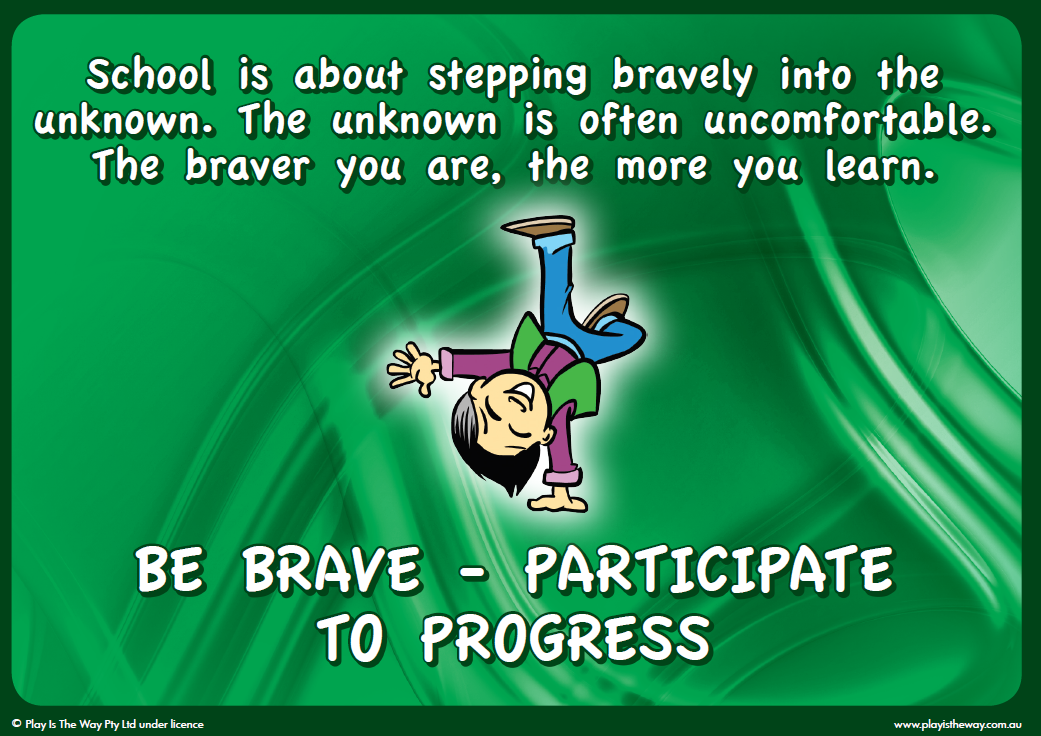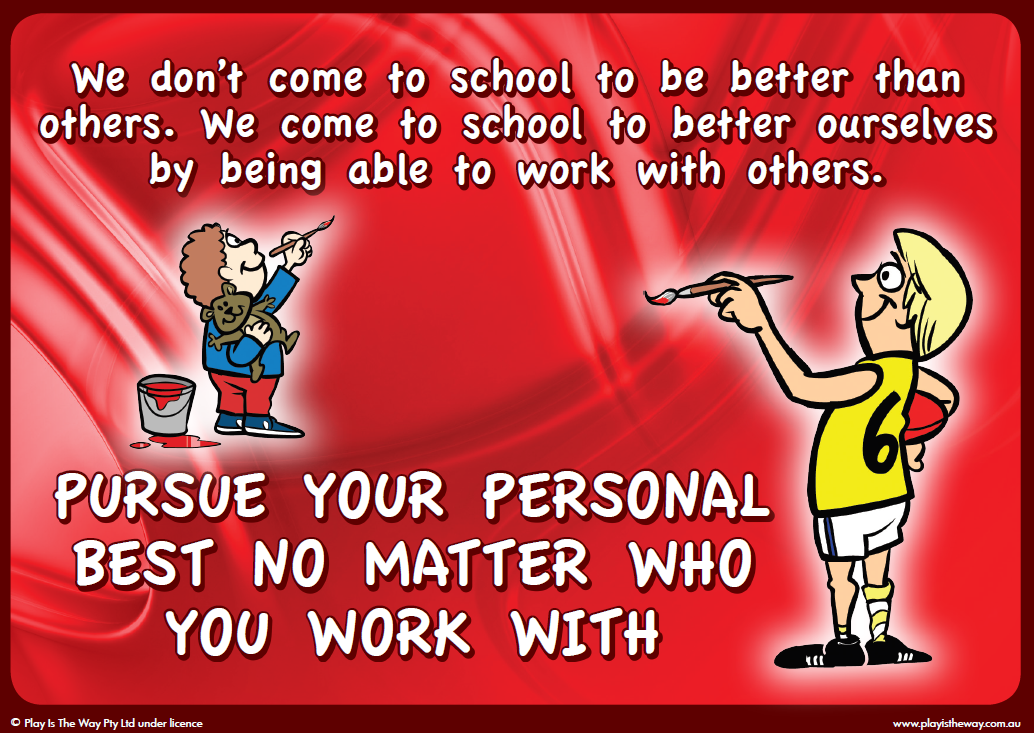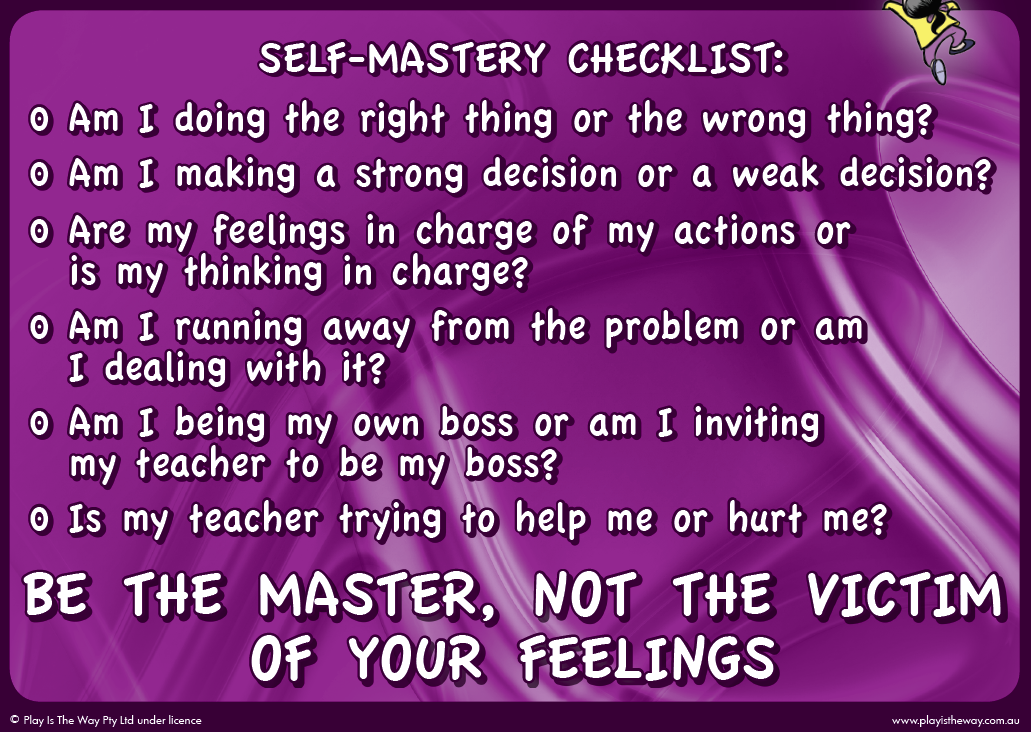Pearcedale Primary School encourages a partnership between school, home and the community providing a safe working and learning environment. The personal development and wellbeing of each student is central to the school vision. This is fostered through Play is the Way, Respectful Relationships and wellbeing lessons. Students support each other through our leadership, buddy and peer mediator programs.
We celebrate, learn about and practice are school virtues; Respect, Safe, Aspire and Courage.
Our wellbeing team provide regular support to individual students, small groups and cohorts. If you would like more information about the wellbeing team please contact Rachel Jessep.
Play is the Way®
What is Play Is the Way?
Play is the Way is a philosophy of behaviour education that fosters independent, self-managing, self-motivated, empathetic, life-long learners. It utilises 5 guiding concepts:
Have reasons for the things you say and do.
Treat others as you would like them to treat you
Be brave participate to progress
Pursue your personal best no matter who you work with
It takes great strength to be sensible
WHY Wilson McCaskill’s ‘Play Is The Way’ at PPS?
We believe that through incorporating the PITW key concepts, PITW games and self-reflective language:
Social and emotional wellbeing is enhanced. This is essential for the overall health and wellbeing of students and helps them to optimise their learning.
- Not only do we believe in building social and emotional competencies in your children, it’s in the Victorian Curriculum.
- staff, students and parents create a safe and consistent learning environment
- Students are trained to be independent, self-managed and self-motivated learners
- Students become persistent in their pursuit of their personal best and are able to get along with each other
- Students develop into strong characters with the social and emotional competencies to live and learn well
How is Play Is The Way Facilitated?
We use a combination of:
- Physically interactive, games and activities that both require and develop personal and social capabilities as they are being played.
- Five guiding concepts that serve as a moral compass and help children to do what they believe is right and best to do. When embedded, these concepts prevent children from drowning in life and learning – hence, they are aptly called Life Raft concepts.
- An empowering self-reflective language that helps children to master their behaviour in preparation for a responsible life in a free and democratic society.
The HOW: The PITW Games/ Key Concepts
Some of the games allow students to be put in situations where they will get frustrated but they need to ‘participate to progress’ and learn to overcome problems and come up with solutions.
Lesson structure:
- Pre-game: Students have a focus based on a key concept
- During the game: Teachers don’t ‘rescue’ but may encourage discussion/ problem solving from students
- Post game: Have a strong conversation using the PITW language
For more information contact your classroom teacher or visit: https://playistheway.com.au/






Respectful Relationships
The statistics in Australia regarding domestic and family violence against women are very alarming, with evidence showing that in many cases young children are witness to this violence. The Royal Commission into Family Violence identified the critical role that schools have in creating a culture of respect to change the story of family violence for future generations.
The Respectful Relationships whole-school approach recognises that schools are a workplace, a community hub and a place of learning. Everyone involved in our school community deserves to be respected, valued and treated equally.
We know that changes in attitudes and behaviours can be achieved when positive attitudes, behaviours and equality are lived across the school community, and when classroom learning is reinforced by what is modelled in our school community.
The Resilience, Rights and Respectful Relationships learning materials have been designed for teachers in primary and secondary schools to develop students’ social, emotional and positive relationship skills. Efforts to promote social and emotional skills and positive gender norms in children and young people has been shown to improve health-related outcomes and subjective well-being. It also reduces antisocial behaviours including engagement in gender-related violence.
Each year level covers the same topics at the same time over a two-year period, with the exception of Prep who cover all the topics in one year. The topics are listed below and these are the same at each year level. The Resilience, Rights and Respectful Relationships program is assessed in the Victorian Curriculum areas of Personal and Social Capability and Health and Physical Education.
Emotional Literacy: This helps students develop the ability to be aware of, understand and use vocabulary about the emotional states of themselves and others with competence.
Personal Strengths: Students develop a vocabulary to help them recognise and understand various strengths and positive qualities in themselves and others. They identify the strengths they admire in others and those they need to draw on to engage with the challenges and opportunities that life presents.
Positive Coping: Students develop language around coping, critically reflect on their coping strategies and extend their repertoire of positive coping strategies.
Problem-solving: Students learn a range of problem-solving techniques that can be applied when confronting personal, social and ethical dilemmas. They engage in applied learning tasks in which they apply their problem-solving skills to be realistic.
Stress management: This teaches students to learn a range of problem-solving skills through applied learning tasks, so that they are able to cope with challenges as they arise.
Help-seeking: Help seeking is a coping strategy that involves seeking technical, instrumental, social or emotional support from other people.
Gender and identity: These are age-appropriate learning activities that assist students to understand and critique the influence of gender norms on attitudes and behaviours.
Positive gender relationships: This teaches students to build positive gender relationships and the importance of acceptance of difference and diversity
If you have any questions or would like to know more about Respectful Relationships at PPS please speak to your classroom teacher.
